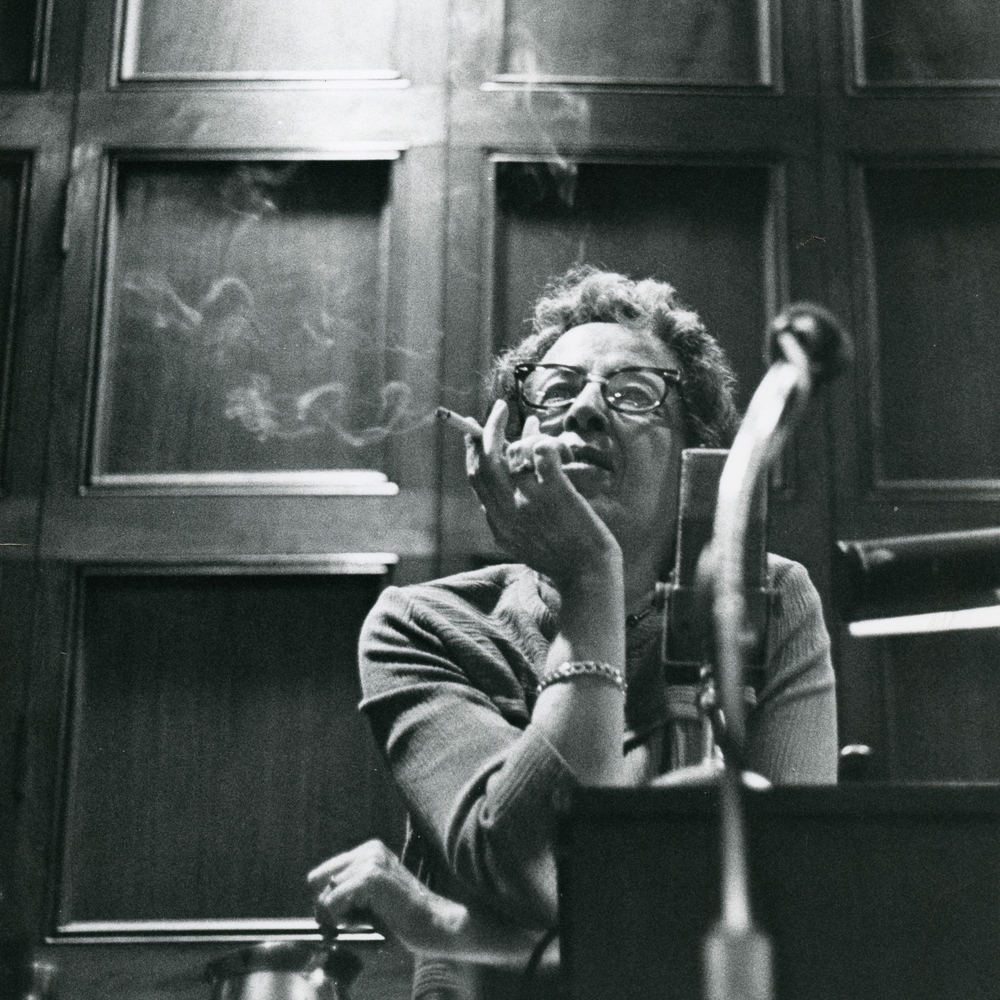“The greatest evil perpetrated is the evil committed by nobodies, that is, by human beings who refuse to be persons,” wrote the political philosopher Hannah Arendt in the lectures titled “Some Questions of Moral Philosophy.” Born to a Jewish family in Linden in 1906, mentored by Martin Heidegger and Karl Jaspers, Arendt was forced to leave Germany in 1933, when Hitler came to power. She went on to a brilliant career in the West, finally settling in New York, and made totalitarianism, power, and evil the primary focus of books that were enormously influential. And then there was Eichmann in Jerusalem: A Report on the Banality of Evil. An explosive report on the trial of Adolf Eichmann, the SS officer who managed the deportation of Europe’s Jews to Nazi concentration camps, it was serialized in 1963 in The New Yorker, and it is still controversial. This exhibition celebrates the life and work of a fearless public intellectual, a woman who hit the biggest issues of her time head on. —E.C.
Arts Intel Report
Hannah Arendt and the Twentieth Century

When
Jan 12 – Mar 21, 2021
Where
Etc
Hannah Arendt at the University of Chicago, 1966 © Art Resource, New York, Hannah Arendt Bluecher Literary Trust.